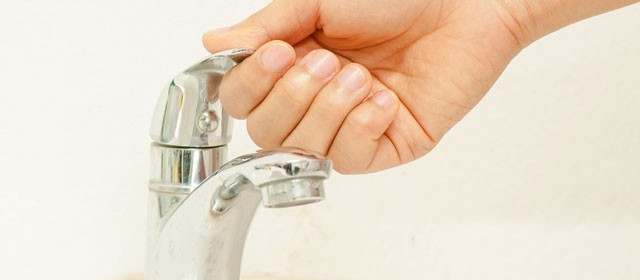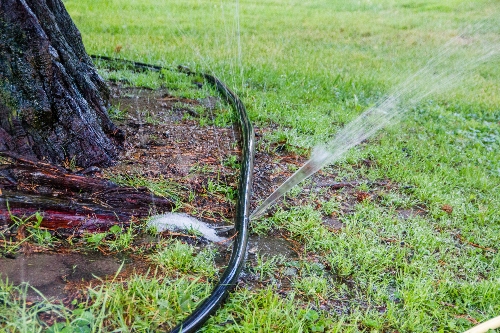This article listed below on the subject of Common Causes of Water Leaks in the Home is immensely remarkable. Have a go and draw your own personal results.

"Be cautious of little expenditures. A small leak will sink a terrific ship." - Benjamin Franklin.
He couldn't have been more right due to the fact that water leaks in our homes cause a waste of sources, enhancing our water bills. Although this rise may seem negligible at first, it can cause considerable expenditures that can break your bank. Besides a rise in expenses, water leakages likewise create unwanted natural development, structural damage, as well as also electrical dangers.
Identifying if you have a water leak isn't always easy because of being not able to see a lot of the pipework in your house. Nonetheless, If you have had an increase in your water expenses recently, discovered water stains on wall surfaces as well as ceilings, scented lousy smell, etc. You could intend to consider asking for plumbing solutions to get it looked into.
There are several reasons for water leaks, and also we have compiled the usual factors listed below. Check to see if you have had associated concerns in your home lately.
Blocked drains
Food fragments, dust, and oil can cause blocked drains and obstruct the passage of water in and out of your sink. If undealt with, raised stress within the gutters can trigger an overflow and finish up splitting or bursting pipes. To stay clear of blocked drains pipes in your house, we recommend you to prevent pouring particles away and routine cleansing of sinks.
High water pressure
You noticed your house water stress is more than common however after that, why should you care? It's out of your control.
It would certainly be best if you cared since your ordinary water pressure must be 60 Psi (per square inch) and also although your house's plumbing system is developed to stand up to 80 Psi. A boost in water pressure can put a pressure on your home pipelines and also cause splits, or even worse, burst pipes. Obtain in touch with a specialist about regulating it if you ever discover that your residence water stress is greater than common.
Corrosion
As your pipework gets older, it gets weaker and much more susceptible to rust after the frequent passage of water through them, which can gnaw at pipelines as well as create splits. A noticeable indication of rust in your home plumbing system is staining as well as although this could be difficult to find because of most pipelines hidden away. Once they are old to ensure a sound plumbing system, we advise doing a frequent examination every few years as well as change pipelines
Damaged pipeline joints
Pipe joints are the parts of our plumbing system where the pipes link. They are the weakest factor of our plumbing system. Because of this, they are much more vulnerable to damage. It is essential to note that despite the fact that pipes are designed to stand up to pressure and last for some time, they weren't designed to last for life; therefore, they would deteriorate in time. This damage can lead to fractures in plumbing systems. A common indicator of damaged pipeline joints is extreme sound from faucets.
Damaged seals
One more root cause of water leaks in residences is damaged seals of residence devices that make use of water, e.g., a dishwashing machine. When such appliances are installed, seals are set up around water connectors for very easy flow of water with the maker. A busted seal can create leak of water when in usage.
With little or no understanding of plumbing, recognizing your home's plumbing system enough to repair several of these concerns (without repercussion) can be a hassle. Contact plumbing experts in Pittsburgh, Providence, Rochester, as well as environ today, as well as they'll make those concerns go away.
He could not have been much more right because water leakages in our residences result in a waste of sources, enhancing our water expenses. If you have had a boost in your water bills lately, discovered water stains on ceilings and also walls, smelt lousy odor, etc. An increase in water stress can put a strain on your home pipelines and lead to cracks, or even worse, ruptured pipes. An additional cause of water leakages in residences is broken seals of residence devices that use water, e.g., a dishwasher. When such devices are mounted, seals are mounted around water ports for easy passage of water through the maker.
5 TIPS IN DETECTING A WATER LEAK IN YOUR HOUSE
Water leaks can be hard to find in your home, yet they can be so common. We rely on water every day in our home, which is why a leak can cause big problems. By detecting them early, you can save money and further damage, getting the problem fixed as soon as possible. Here are 5 tips to help you detect a water leak in your home, so you can contact a plumber straight away and get the issue sorted.
Check your water meter
Many people underestimate the value of the water meter in their home. It can be one of the best ways to tell if you have a leak early on, so you can get on top of it before issues start arising. Start by turning off all the water in your home: taps, washing machine, dishwasher, etc. Now take a look at the meter – if it’s still changing with everything turned off, it’s likely you have a fast-flowing leak that you need to get on top of straight away. If nothing changes, then leave your meter for an hour or two and come back to it. Did it change in this time? It’s likely you have a slower leak, which isn’t as urgent but still handy to get fixed so it doesn’t become a bigger problem.
Keep an eye on your bill
Another good way to detect a leak in your home is by keeping an eye on your water bill. It helps if you have a past bill from the same period of time. You can compare like for like and determine whether your water usage has increased significantly. If it has, there may be a leak in your system that you haven’t picked up before. A professional plumber can check through all of your pipes and determine where it is coming from.
Look for damage
If you have a leak inside your home, you will notice damage over time. Take a look at your showers and bathtubs and note whether any of the tiles surrounding the area seem to be discoloured or damaged in any way. There may be water stains, mould or peeling material that has resulted from a build up of moisture over time. Make sure you take a look under sinks at the back of cupboards that don’t get accessed regularly. This is where damage can go unnoticed and build up over periods of time.

As a passionate person who reads about How to Find and Prevent Water Leaks in Your Home, I figured sharing that chunk was a great idea. So long as you appreciated our blog post plz do not forget to pass it around. I value reading our article about Common Causes of Water Leaks in the Home.
Urgent support required?